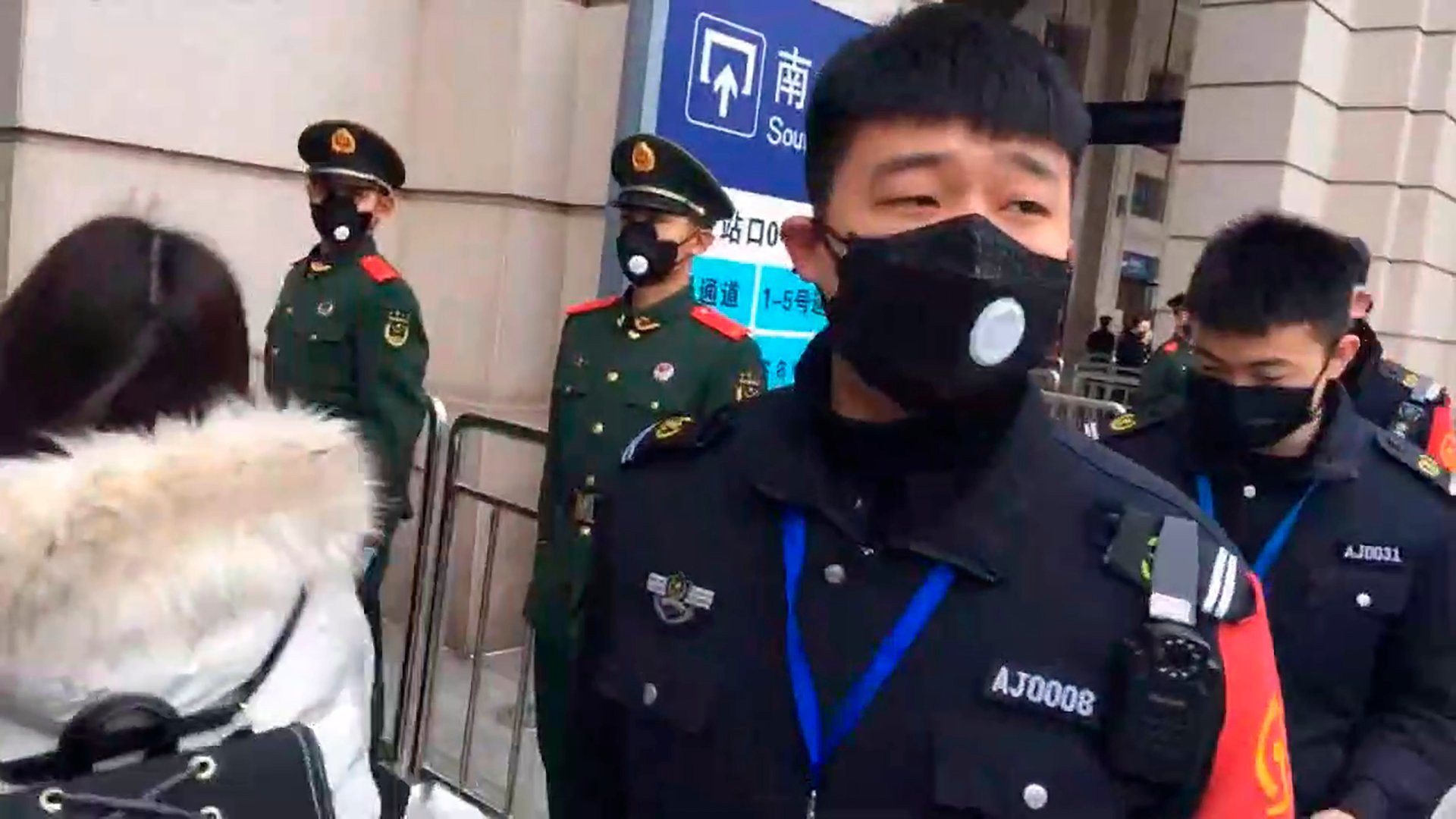Chinese people are using “Chernobyl” to channel their anger about the coronavirus outbreak
One of the most popular TV shows of 2019, HBOs’s Chernobyl, is striking a chord in disease-stricken China.


One of the most popular TV shows of 2019, HBOs’s Chernobyl, is striking a chord in disease-stricken China.
A core theme of the show—which was based on the nuclear explosion that happened in 1986 in northern Ukraine, then part of the Soviet Union—was the ineptitude of the communist government in handling the disaster, particularly in the way that it tried to suppress information about the disaster.
Some people in China, are drawing parallels with how Soviet authorities managed the nuclear disaster to how the Chinese government is handling the current coronavirus outbreak. For example, Chinese authorities only reported on Jan. 20 that the disease had spread to cities outside of Wuhan in Hubei province, where the outbreak has been traced to. However, days before China reported its first cases outside the central Chinese city, Thailand and Japan both reported infections, prompting some Chinese to joke at the time that the virus was “patriotic” as it only seemed to infect foreigners. Some people were also detained last month for spreading rumors after they posted about the virus on social media.
Wuhan mayor Zhou Xianwang admitted in an interview (link in Chinese) today on TV that the disclosure of information about the virus outbreak wasn’t timely, but said that people need to understand that the reason for that was because he needed authorization in order to reveal relevant information in the time of an epidemic.
Some 2,700 people have contracted the illness and 80 people have been killed at the latest count. Cases have also been confirmed in Hong Kong, Taiwan, South Korea, and the United States. More than a dozen Chinese cities have been put on lockdown, while outbound tour groups have been banned by the Chinese government.
“Wuhan and Chernobyl, how similar are they! And how sad this is!” wrote one (link in Chinese) user on book and film review website Douban, seen as one of the country’s few remaining corners for liberal thought.
The page for Chernobyl (link in Chinese) on Douban—where the show is rated 9.6 out of 10 by over 200,000 users—is now under restricted access on the site, allowing only registered users to view and comment on it. Previously it was accessible to anyone.
“I hope Chinese people can learn something from the show. The things that can protect us are not nuclear weapons, aircraft carriers, or things that can land on the moon. Things that protect us are free flow of information and news, and judicial independence,” said another (link in Chinese) person in a discussion group about the show.
Even on heavily censored Weibo, China’s Twitter-like social network, people are channeling their frustrations through Chernobyl references. “Every lie we tell incurs a debt to the truth. Sooner or later that debt gets paid,” wrote one user (link in Chinese), citing a quote from the show. “The spread of the coronavirus has fully resembled the unfolding of the Chernobyl incident, but with the Wuhan government making even more effort [than the Soviet Union] to suppress information… some officials will eventually pay a heavy price for withholding the truth for so long, let’s wait and see,” wrote another (link in Chinese).
The references made to Chernobyl represent the latest round of online backlash against the Chinese government’s handling of the virus. Though open dissent against the government is rare in China, many of the comments that are able to live online are those that target only local officials in Wuhan and Hubei province, suggesting that the authorities are deliberately leaving open a channel for people to voice their discontent at a time of mounting anger. As part of that strategy to manage discontent, the government has also set up a whistleblower feature online for people to notify the government of officials’ negligence and malpractice during the outbreak.